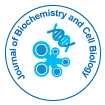开放获取期刊获得更多读者和引用
700 种期刊 和 15,000,000 名读者 每份期刊 获得 25,000 多名读者
抽象的
Unraveling the Complexity of Cancer: Insights from Molecular and Cellular Perspectives
Shisong R
Cancer a formidable adversary in the realm of human health, continues to pose significant challenges to our understanding and treatment capabilities. This abstract provides a concise overview of recent advancements in cancer biology, exploring the intricate molecular and cellular mechanisms that underlie the initiation, progression, and therapeutic responses in various cancer types. The journey into the heart of cancer biology begins with a detailed examination of oncogenesis, where genetic and epigenetic alterations drive normal cells toward a malignant fate. From the dysregulation of critical signaling pathways to the emerging role of non-coding RNAs, this abstract navigates the intricate landscape of molecular aberrations that characterize cancer development. Moreover, a focus on the tumor microenvironment reveals its pivotal role in shaping cancer phenotypes. Interactions between cancer cells and their surroundings, encompassing immune cells, stromal components, and vasculature, play a crucial role in tumor progression and response to therapy. The dynamic interplay between these components adds another layer of complexity to the understanding of cancer biology. Advancements in single-cell technologies have paved the way for unraveling heterogeneity within tumors, offering insights into the coexistence of diverse subpopulations with distinct molecular profiles. This newfound appreciation for intra-tumor heterogeneity challenges traditional cancer models and calls for personalized therapeutic approaches tailored to the unique genetic makeup of individual tumors. The abstract also delves into the evolving landscape of cancer therapy, highlighting the emergence of precision medicine and immunotherapy. Targeted therapies, exploiting specific molecular vulnerabilities, showcase promising outcomes, while immunotherapeutic strategies harness the power of the immune system to recognize and eliminate cancer cells. The challenges and opportunities in translating these innovations from bench to bedside are discussed, emphasizing the need for interdisciplinary collaboration and ongoing research efforts.

 English
English  Spanish
Spanish  Russian
Russian  German
German  French
French  Japanese
Japanese  Portuguese
Portuguese  Hindi
Hindi